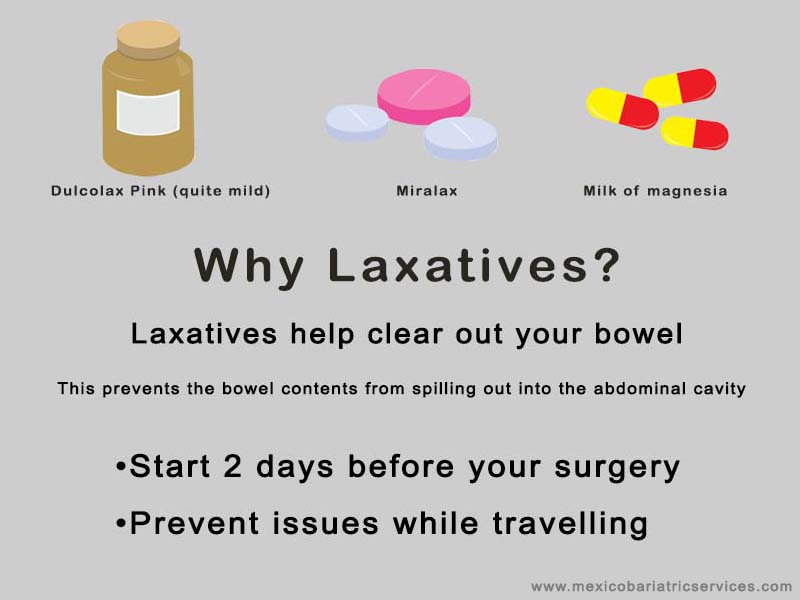
Have you ever wondered about the role of laxatives in weight loss? In this article, we will explore the use of laxatives in dieting and shed light on their effectiveness as a weight loss aid. While some people turn to laxatives as a quick fix for shedding those extra pounds, it’s important to understand their role and the potential risks involved. Join us as we delve into this topic and gain a better understanding of the truth behind laxatives for weight loss.

This image is property of cdn.shopify.com.
Scientists Discover A Hidden Root Cause Of Stubborn Belly Fat, And It Will Surprise You…
What are laxatives?
Laxatives are substances or medications that are used to promote bowel movements, relieve constipation, and empty the bowels. They are commonly used to alleviate symptoms such as infrequent or hard stools. Laxatives work by either stimulating the muscles in the intestines or softening the stool, making it easier to pass.
Definition of laxatives
Laxatives are substances that promote bowel movements by increasing the frequency and/or ease of stool elimination. They are available in various forms such as tablets, capsules, liquids, powders, or suppositories. Some laxatives are available over-the-counter, while others may require a prescription from a healthcare professional.
Types of laxatives
There are several different types of laxatives, each with its own mechanism of action. Some common types of laxatives include:
- Bulk-forming laxatives: These laxatives contain fiber and work by absorbing water in the intestines, which adds bulk to the stool and stimulates bowel movements.
- Stimulant laxatives: These laxatives stimulate the muscles in the intestines, causing contractions and promoting bowel movements.
- Osmotic laxatives: These laxatives work by drawing water into the intestines, softening the stool and making it easier to pass.
- Stool softeners: These laxatives assist in softening the stool, making it less challenging for individuals who have difficulty passing hard or dry stools.
- Lubricant laxatives: These laxatives help coat the stool, making it easier to pass through the intestines.
- Suppositories: These are small, solid capsules containing medication that is inserted directly into the rectum to stimulate bowel movements.
How do laxatives work?
Mechanism of action
The mechanism of action for each type of laxative varies, but overall, their goal is to either stimulate bowel movements or soften the stool. Bulk-forming laxatives work by increasing the water content in the stool, which adds bulk and stimulates the intestinal muscles to contract. Stimulant laxatives, on the other hand, directly stimulate the nerves in the intestines, causing them to contract more forcefully and promote bowel movements.
Effects on the digestive system
Laxatives can have various effects on the digestive system. They can increase the frequency of bowel movements, alleviate constipation, and provide relief from symptoms such as abdominal discomfort or bloating. Some laxatives may also help regulate bowel movements by creating a predictable pattern.
Potential side effects
While laxatives can provide relief from constipation, prolonged or excessive use of laxatives can lead to side effects. Common side effects include abdominal cramping, diarrhea, dehydration, electrolyte imbalances, and imbalances in the natural bacteria in the intestines. It is essential to use laxatives according to the recommended dosage and duration and only under the guidance of a healthcare professional.

This image is property of thedietstation.com.au.
The Secret For Healthy Weight Loss…Click Here…
Misconceptions about laxatives and weight loss
Laxatives as a long-term solution for weight loss
It is crucial to recognize that laxatives are not an effective or safe long-term solution for weight loss. While some individuals may experience temporary weight loss due to increased bowel movements, this weight loss is primarily due to water loss and not fat loss. Using laxatives as a constant weight loss method can lead to serious health risks.
Understanding water weight loss
Weight loss caused by laxatives is often attributed to the loss of water from the body. When laxatives stimulate the intestines, they can increase the frequency and volume of bowel movements, leading to a temporary reduction in water weight. However, this weight loss is not sustainable or healthy, as it does not target fat loss.
The dangers of relying on laxatives for weight loss
Relying on laxatives for weight loss can be dangerous and harmful to overall health. Laxatives are not designed for weight loss purposes and using them regularly for this purpose can lead to dehydration, electrolyte imbalances, nutrient deficiencies, and damage to the digestive system. It is crucial to focus on healthy and sustainable methods of weight loss, such as adopting a balanced diet and engaging in regular physical activity.
The role of laxatives in dieting
Managing constipation in a calorie-restricted diet
When following a calorie-restricted diet, some individuals may experience constipation due to a decrease in overall food intake. In these situations, laxatives can be used temporarily to alleviate constipation, promote regular bowel movements, and prevent discomfort.
Temporary relief from bloating
Bloating is a common complaint among individuals who are dieting. In some cases, bloating may be caused by constipation or slow intestinal transit. Taking appropriate laxatives can provide temporary relief from bloating by stimulating bowel movements and reducing the buildup of gas in the intestines.
Enhancing water elimination
Laxatives that draw water into the intestines can help to eliminate excess water from the body. This can be especially useful for individuals who may experience water retention, which can contribute to feelings of bloating or puffiness. However, it is essential to note that this is a temporary solution and not a long-term weight loss strategy.

This image is property of mexicobariatricservices.b-cdn.net.
Potential risks and dangers of laxative abuse
Dehydration and electrolyte imbalances
Laxative abuse can lead to dehydration and electrolyte imbalances, especially if used excessively or for prolonged periods. Excessive bowel movements caused by laxatives can result in a significant loss of fluids and electrolytes, which are essential for proper bodily functions.
Dependence on laxatives
Regular use of laxatives can lead to dependence, where the body becomes reliant on laxatives to have regular bowel movements. This can result in a decreased ability of the intestines to move stool naturally, leading to more significant difficulties with constipation.
Digestive system damage
Prolonged and excessive use of laxatives can damage the digestive system. The constant stimulation of the intestines can cause them to become less responsive to natural signals, leading to a reliance on laxatives for bowel movements. Additionally, laxative abuse can disrupt the natural balance of bacteria in the intestines, leading to further digestive issues.
Healthy alternatives for weight loss
Adopting a balanced and nutritious diet
Instead of relying on laxatives for weight loss, it is essential to focus on adopting a balanced and nutritious diet. This includes consuming a variety of foods from all food groups, including fruits, vegetables, whole grains, lean proteins, and healthy fats. A balanced diet provides the necessary nutrients for overall health and supports sustainable weight loss.
Regular physical activity
Physical activity plays a vital role in weight loss and overall health. Engaging in regular exercise helps to increase the number of calories burned, supports muscle development, improves cardiovascular health, and boosts overall well-being. Including both cardiovascular exercises and strength training in a fitness routine can aid in weight loss efforts.
Making lifestyle changes
To achieve long-term and sustainable weight loss, it is important to make lifestyle changes rather than relying on quick fixes like laxatives. This includes adopting healthy eating habits, managing portion sizes, practicing mindful eating, getting enough sleep, and managing stress levels. These changes can contribute to not only weight loss but also overall well-being.

This image is property of i0.wp.com.
Seeking professional guidance
Consulting a healthcare professional
Before starting any weight loss regimen or introducing laxatives into your routine, it is crucial to consult with a healthcare professional. They can provide personalized advice, assess your overall health, and guide you towards safe and effective weight loss strategies.
Working with a registered dietitian
A registered dietitian can play a crucial role in helping you develop a personalized and balanced diet plan. They can help you set realistic weight loss goals, provide guidance on portion sizes and nutrient distribution, and educate you on making healthier food choices that contribute to long-term weight management.
Understanding individual needs and goals
Everyone’s weight loss journey is unique, and it is important to understand individual needs and goals. Working with healthcare professionals can help identify specific areas of focus and develop personalized strategies for weight loss and overall well-being.
Identifying warning signs and seeking help
Recognizing signs of eating disorders
Excessive use of laxatives for weight loss can be a sign of an underlying eating disorder, such as bulimia or anorexia nervosa. It is essential to be aware of warning signs such as a preoccupation with weight, food restriction, binge eating followed by purging behaviors, and changes in mood or behavior. If you or someone you know is displaying these signs, seeking help from a mental health professional is crucial.
Talking to a mental health professional
If you suspect that laxative abuse or weight loss efforts are driven by underlying emotional or psychological issues, seeking help from a mental health professional is crucial. They can provide support, guidance, and therapy to address any underlying issues and promote a healthy relationship with food and the body.
Building a support network
Weight loss and maintaining a healthy lifestyle can be challenging, so building a support network is vital. Surrounding yourself with supportive friends, family members, or joining support groups can provide encouragement and accountability. Sharing your journey with others who have similar goals can help you stay motivated and make positive changes in a sustainable way.

This image is property of www.stylecraze.com.
Conclusion
While laxatives can provide temporary relief from constipation and bloating, they are not a safe or effective long-term solution for weight loss. Relying on laxatives for weight loss can have serious health risks and complications. Instead, focus on adopting a balanced and nutritious diet, engaging in regular physical activity, and making sustainable lifestyle changes. It is crucial to seek guidance from healthcare professionals, recognize warning signs of eating disorders, and build a support network to ensure a healthy and successful weight loss journey.
The Most Potent, Fast-Acting Formula For Incinerating Stubborn Fat
